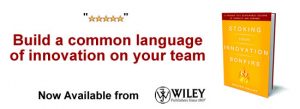Innovation Through Crowdsourcing and AI

If artificial intelligence (AI) is the future, the future is now, and it’s all around us. Despite what science fiction and futuristic fantasy may have you believe, AI isn’t all about recreating human consciousness. Rather, it’s a practical, efficient way to help business technology get smarter as a product gains traction. AI allows companies to use insights from a large community of users to continually improve upon their products.
However, AI isn’t all games and robots. It takes a cross-sectional skill set to successfully implement good AI, and in order to do so, companies need to both understand their consumers’ motivations and capitalize on them using the right tools.
If done correctly, a balanced blend of AI plus crowdsourcing can be a valuable addition to your business.
AI and Crowdsourcing: Better Together
Plenty of businesses rely on data from the usual suspects — business analytics, internal data, information gathered by employees — but few understand how to actively manage data contributed by users. Alexa and Siri are prime examples of how AI can leverage this crowdsourced information to improve the customer-company relationship.
Using crowdsourcing to gather human-contributed information and funneling that information through AI technology is the simplest path toward more meaningful insights. This method allows business owners to stop hunting down insights one at a time and to instead receive targeted data to inform smarter business decisions. This collaboration produces results that are greater than the sum of the parts.
 Crowdsourcing alone provides too much information to sift through, and AI without human-provided data can’t put out evidence-based insights.
The value lies in asking the right questions at the right time using AI and reporting the findings to the people who could benefit from the information. Collectively, crowdsourcing and AI produce truly intelligent market research.
Teamwork Makes the Dream Work
Companies must integrate crowdsourcing and AI to produce a scalable, intelligent model capable of handling their needs indefinitely. Many implement AI without really identifying how it can help them. Other, more tech-focused companies often find themselves trying to lay crowdsourcing on top of existing technology without properly understanding how to motivate their crowds.
Crowdsourcing matches people to questions that the community needs answered. Those with information to share can provide feedback on their fields of expertise according to the needs of those searching for that information. Meanwhile, AI technology filters out the answers and extracts meaningful intelligence from them, creating a powerful advantage over companies that fail to combine these tools to their full potential. What advantages, you ask? Here are a few:
- A streamlined end-user experience. Alexa, Siri, Waze, and Skype Translator are all embodiments of the improved end-user experience thanks to crowdsourced AI insights. In the early stages, using these tools can be frustrating as they continue to gather data.
Once the technology has enough information, products like these can provide experiences that are incomparable to those not enlightened by AI insights.
Waze took traffic navigation — something very few people like — and improved it with real-time updates, personalized vocal guides, and other features.
A wealth of information is the foundation. AI and crowdsourcing can build on that base to create a valuable, magical experience.
- It brings outsiders into the fold. Waze began by gathering information on the patterns of power commuters eventually building up enough data via crowdsourcing and expert consultations to create optimal route maps for its users. Thanks to the app, people new to an area can have the same driving experience as someone who has lived there for 10 years.
The powerful crowdsourcing-AI combination has the capability to bring any outsider into any inner circle. The more comfortable a user is with the information — especially if he provides it — the more likely he is to become a repeat visitor.
- Lots of intelligence, all in one spot. Currently, business leaders must track down information in silos. For example, only a specific department can answer specific questions, and help is often stalled while a department waits for approval from another division.
Combining crowdsourcing with AI allows business leaders to have in one place all the information they need to make important decisions.
When done properly, this streamlining of processes even allows leaders to see connections they otherwise might have overlooked.
While some technologies introduce only complications to established processes, the power of combining crowdsourcing with AI is worth the disruption. If your company is looking for better insights and new advantages, consider the benefits of this powerful merger.
image credit: bigstockphoto.com
Wait! Before you go…
Choose how you want the latest innovation content delivered to you:
- Daily — RSS Feed — Email — Twitter — Facebook — Linkedin Today
- Weekly — Email Newsletter — Free Magazine — Linkedin Group
Jeremy Bellinghausen is the COO of Owler, the free competitive intelligence platform business professionals use to outsmart their competition, gain competitive insights, and uncover the latest industry news and alerts. He’s spent the the past 15 years in the internet industry, working as the CEO of TopSpin, president of Hotel Club, and general manager at Business.com. Follow @owlerinc
is the COO of Owler, the free competitive intelligence platform business professionals use to outsmart their competition, gain competitive insights, and uncover the latest industry news and alerts. He’s spent the the past 15 years in the internet industry, working as the CEO of TopSpin, president of Hotel Club, and general manager at Business.com. Follow @owlerinc
NEVER MISS ANOTHER NEWSLETTER!
LATEST BLOGS
What happened to smart advertising?
For a television advertisement to be effective, do you need to lay out everything for the viewer and make it obvious? Or, is an advertisement more memorable if you let the viewer connect the dots themselves? Here are two examples of television advertisements that promote the product in a slightly more intellectual/emotional way that promotes engagement and curiousity:
Read MoreInvention versus Innovation
Continuous innovation requires that innovation is placed at the center of the organization and that all parts of the organization are changed to support it. To effectively place innovation at the center of the organization, people must know what innovation is, what it looks like in their organization, and how they can contribute. Most people easily confuse invention with innovation, and wrongly chase invention in the name of innovation.
Read More



